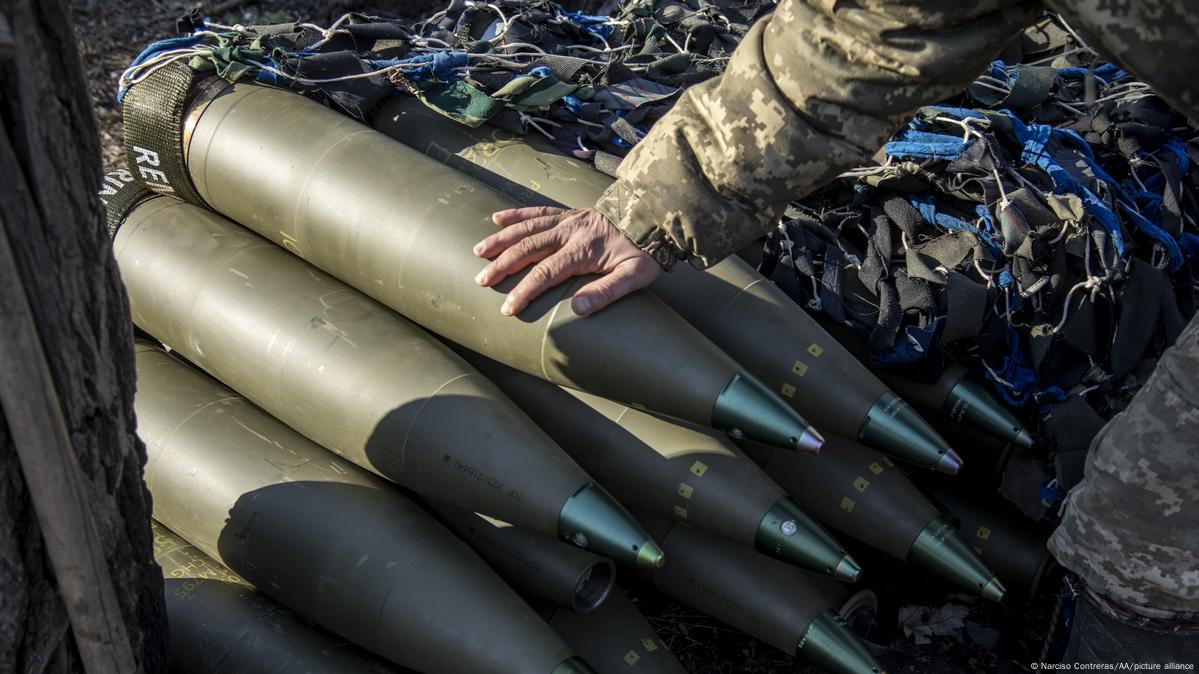Gunpowder Shortage in Europe: Can Ukraine Supply the Army with Shells?
31 March 21:58 VIDEO
VIDEO
The shortage of gunpowder in the world makes it difficult to produce shells. And Ukraine has already felt this deficit. Polish political scientist and journalist Marek Sierant told about this on the air of KIEV24 on March 31, "Komersant Ukrainian" reports.
He noted that the production of military equipment is a complex and lengthy process, especially when it comes to gunpowder, which is sorely lacking in the world.
According to the political scientist, Ukraine has no problems with the production of shells, but the lack of gunpowder is a serious problem for them.
“China is one of the largest producers of gunpowder, but its geopolitical position makes it difficult to access this raw material. Now Europe is trying to solve this problem,” said Sierant.
He added that in Poland, in particular, there are only two companies that can produce gunpowder, which creates significant supply difficulties.
Read also: Europe lacks gunpowder and TNT to make shells – Bloomberg
Global gunpowder shortage in 2025: causes, consequences and solutions
In 2025, the world is facing a significant shortage of gunpowder and other essential explosives caused by growing military needs and limited production capacity. This shortage has become a major challenge for the global defense sector, especially in regions that support military operations and supply weapons to conflict zones, such as Ukraine.
Reasons for the gunpowder shortage
Increased military demand. The ongoing war in Ukraine has sharply increased the consumption of ammunition, in particular 155-mm artillery shells. European countries have exhausted their stockpiles of arms and ammunition supplies to Ukraine, while demand for ammunition continues to grow.
Fears of further geopolitical escalation have forced many governments to strengthen their defense capabilities, which has further strained production.
Limited production capacity. Gunpowder production is a complex and resource-intensive process that is heavily dependent on raw materials such as nitrates and sulfur. Many countries do not have sufficient production infrastructure due to decades of military spending cuts.
Regulations and environmental policies in Europe and the United States also limit the creation of new production capacity.
Supply chain disruption. Ongoing geopolitical tensions have disrupted global supply chains for key raw materials. Export restrictions, sanctions against Russia, and tense trade relations have further complicated the supply of essential components for the production of explosives.
The impact of gunpowder shortages on global defense and security
European countries, especially the EU, are facing an acute shortage of artillery shells and gunpowder. The EU’s ambitious goal of producing 2 million artillery shells by 2025 is now in jeopardy.
Countries such as France and Germany are trying to rebuild domestic production capacity to meet growing defense needs.
In addition, the conflict in Ukraine has exposed weaknesses in the US defense industrial base.
Efforts are underway to increase domestic munitions production to ensure a steady supply for both domestic defense needs and international allies.
Economic and political implications
Defense contractors are under increasing pressure to fulfill government contracts, leading to a sharp increase in demand for skilled labor and raw materials. Countries with limited production capacity are forced to rely on imports, making them vulnerable to price spikes and supply chain disruptions.
How they plan to solve the problem
Co-production initiatives. Poland is leading efforts to establish joint ventures with defense companies from France, Germany, South Korea, and Turkey.
These partnerships will help increase production capacity for artillery shells and other ammunition.
Industrial adaptation. Companies such as Rheinmetall are exploring non-traditional partnerships to expand production. For example, the German arms manufacturer has begun talks with Volkswagen about potentially adapting automotive production lines for defense production.
Such cross-sectoral cooperation could be a temporary solution to meet urgent defense needs.
Political and investment support. Governments are increasing defense budgets and offering financial incentives to increase domestic production capacity.
The EU has introduced measures aimed at optimizing military procurement processes, reducing bureaucratic obstacles, and accelerating the expansion of ammunition production capacity.
Opportunities for the future
Although the near-term outlook remains challenging, joint efforts by governments, defense manufacturers and industrial partners are expected to gradually mitigate the impact of the gunpowder shortage. Expanding production capacity, establishing long-term supply chains, and developing international cooperation will be crucial.
In addition, the crisis has highlighted the importance of maintaining sustainable supply chains for defense products and ensuring the sustainability of production facilities. As nations adapt to the changing security landscape, investments in domestic production and cooperative defense initiatives are likely to play a crucial role in preventing similar shortages in the future.
Читайте нас у Telegram: головні новини коротко









